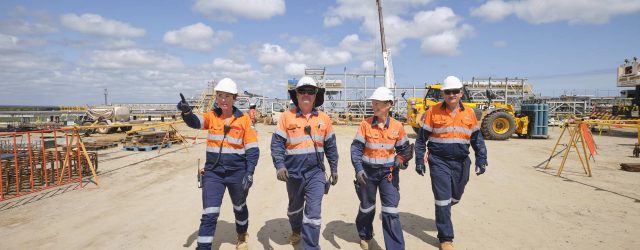There’s a better solution than simply cancelling big projects
Posted: 14th August 2023
Posted in: Blog

Posted: 14th August 2023
Posted in: Blog
Amid increasing project costs and growing concerns about market capacity, it is no surprise that governments are reviewing project pipelines and considering whether to pause or cancel them.
But what if we could have our cake and eat it too? Instead of reviewing pipelines, we should focus on improving construction productivity. Sydney Metro West, Melbourne Airport Rail Link and Inland Rail could all proceed as planned, and with money to spare, if we get serious about improving productivity.
Poor productivity growth is one of the most pressing issues confronting Australia today, threatening to reduce incomes and force Australians into working longer hours to maintain their standards of living.
There has been much discussion about what longer-term macroeconomic measures might be needed to stimulate growth but very little talk of opportunities that could deliver quicker results. The reform of the construction industry is one such opportunity.
The industry directly contributes about $150 billion to the economy every year and indirectly generates an additional $300 billion. It provides employment to over 1 million full-time workers, and even more through the extended supply chain. It is also one of the few industries to experience a decline in productivity. It is now less productive than when Kevin was left home alone again in New York, and CDs topped the music charts.
A report prepared by Oxford Economics for the Australian Constructors Association identified that closing the gap in productivity growth between construction and other important industries would result in annual national savings of $56 billion– or $17 billion in NSW, $14 billion in Victoria and $11 billion in Queensland. It would also raise the nation’s productivity, bringing it back to levels not seen since the 1990s.
So, what is holding us back? It is certainly not a lack of ideas or the willingness from all stakeholders to shift the dial. The conventional wisdom is that construction companies are laggards, lacking sophistication and the appetite for change. But it is easy to exaggerate the sector’s resistance to change, particularly technological improvements.
There is no doubt that construction companies and workers are willing to adopt new technologies when beneficial. It is often forgotten that construction contractors were among the earliest adopters of mobile phones. Overwhelmingly, they welcome new tools that make them more productive and safer.
The construction industry’s productivity problem runs far deeper. The key issue we need to tackle has much less to do with technology than with the industry’s basic operating system. The myopic focus on getting the lowest price at the tender box has driven a race to the bottom that has contributed to an industry that accounts for a disproportionate share of business insolvencies, a worryingly high incidence of suicide among its workers, the lowest rate of female participation of any sector, and non-existent productivity growth.
It is time for a new operating system – one that focuses on delivering the best value, not the lowest cost.
This is literally a nation-building priority. As things stand, we have insufficient resources to simultaneously solve the housing crisis, deliver the new energy required to meet our decarbonisation targets, construct the defence infrastructure required to keep our nation safe and build the social and transport infrastructure needed for a growing nation.
The only way we will be able to deliver the infrastructure the country requires is by getting more productive, by doing more with the resources we have.
We need a 10-year national construction strategy that optimises how projects are procured, creates a national digital alliance and improves the skills of all construction workers.
So instead of focusing on project pipelines, let’s focus on productivity. A productive and profitable construction industry is in everyone’s interests and should be a priority for all governments.
Opinion piece by Jon Davies, Chief Executive Officer, Australian Constructors Association
Originally posted via The Australian Financial Review 12 August 2023.